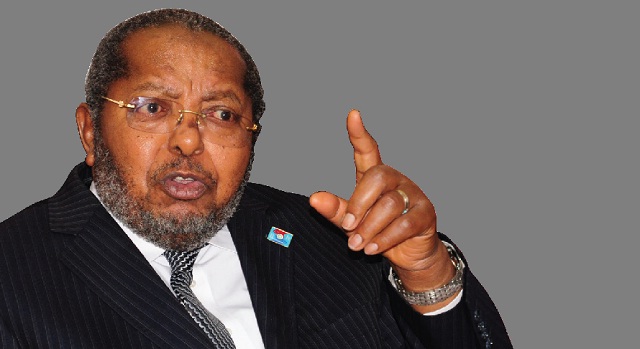
Strive higher, mobilise better
When The Independent asked Julius Kapwepwe, the director of programmes at Uganda Debt Network to comment on the economy, he expressed these fears.
He said the reported 6.1% growth is good but the government must keep the key fundamentals in check.
Specifically he pointed at debt – to –GDP ratio (currently at 41%, which is about 9% lower than the internationally recommended rate of 50%).
“There are concerns especially if we continue to attract someone else’s money before we have fully and prudently utilised our own,” Kapwepwe said. For instance, he said government needs to avoid unnecessary expenditure on public servants; meaning politicians.
The other avenue, he said would be to continue supporting the Uganda Revenue Authority to grow domestic revenue as a way of reducing on external borrowing.
“We must strive higher, mobilise better,” he said.
For instance, he said the taxi industry in Kenya, which is well organised in Saccos, if replicated in Uganda, can easily be taxed. The bodaboda industry too, if well organised can fetch money to support budget expenditure, he said.
He also said that the government must be more careful with tax exemptions because it has been a gaping hole for revenue loss.
Corruption also continues to undermine revenue collection efforts, according to Kapwepwe.
“It is not going to be a matter of how much money has been collected for as long as the basket in which you are putting that revenue is leaking,” he said.
He said that the future growth of Uganda’s economy also depends on affairs in the region. He said political leaders in the East African Community must be committed to implementation of the key regional infrastructure projects – like the oil pipeline.
“At certain level we have to go beyond the politics,” he said, “It needs to give way for technocrats to do their work and for fiscal policies and fiscal directions to continue supporting regional integration which is going to be a key pillar for integration of the Africans.”
He also argued that Uganda must prepare generally to benefit from regional and international markets as a way of stopping to depend on some few countries within the EAC.
“That means we have to be strong on standards of our products, investment across the value chain of sectors…so we can be competitive as the entire global market,” he said, “Otherwise you can open up and get swallowed within the very market that you have opened,”
Enter Mutebile
Although Governor Mutebile speaks of agriculture, industrialisation, and export promotion, it is clear his focus is on financial sector instruments.
When he spoke at the Third Edition of the Annual Bankers Conference held in Kampala on July 16, he said “We must think holistically about the challenges holding back the power of finance to transform our economy”.
He said the government must direct finance and all sectors by facilitating urban-rural linkages and promote export readiness of local firms.
He said for a long time, the high cost and limited access to credit was a binding constraint on Uganda’s economy.
This, Mutebile said that if only banks and other financial institutions could lower their lending rates and expand the volume of their lending, substantial numbers of businesses in the economy would be able to borrow money for investment in order to boost their output while servicing their debt and increasing their incomes.
He said that through automation and adoption of new technologies for delivering financial services, it is possible for banks to reduce their operating costs, and pass on the savings to borrowers through reduced lending rates.
He is optimistic that banks will exploit the potential of bancassurance to exploit synergies with insurance to design products for the riskier borrowers.
But he added: “Whereas I remain uncomfortable with the high lending rates and believe that they should be reduced sustainably over time, I dare say that access to credit is not the ultimate binding constraint on economic growth”.
He said instead, a “proper diagnostic” is required to enable durable solutions.
In agriculture, for example, he said problems that constrain agricultural finance should be tackled first.
On industrialisation, he quoted research by the International Growth Centre that showed that Uganda can industrialise through prioritisation of high productivity services or non-traditional “industries without smokestacks” such as agro-processing, ICT, transport and tourism.
He said the government must focus on boosting export-oriented manufacturing and growth of the tradable services.
This, he said, will help to meet the rapidly growing urban demand for food thereby linking urban and rural growth by creating market for rural production, and even reducing the import bill.
To drive exports, he said local firms should be embedded within the supply chains of international retailers such as the international supermarkets. He said this would promote their export readiness.
Mutebile said sustaining growth would involve making investments in potential areas including roads, cold storage, transport, support for farmer organisations, agricultural extension, and out grower schemes.
He said the future path of the exchange rate, higher government spending, adverse weather conditions that could lead to a rise in inflation, and weaker global economy emanating from escalating trade tensions as the major risks the economy faces.
****
 The Independent Uganda: You get the Truth we Pay the Price
The Independent Uganda: You get the Truth we Pay the Price





